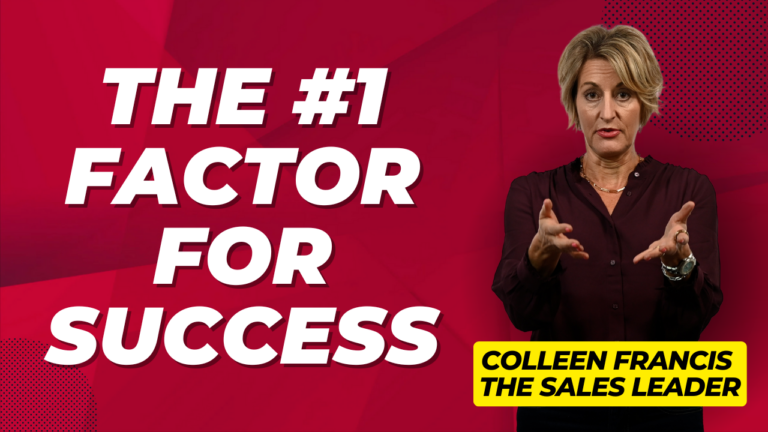This year
is now officially almost half over. Is your sales team performing at their maximum potential?
In recent articles,
we’ve covered a range of tips and techniques to help professional sales people
fuel their success. This week, as the height of summer approaches, we’re focusing
on all the sales managers, business owners and sales leaders out there who are looking
for new ways to increase their team’s (or company’s) revenues – and
improve their profit margins – as we head into the second half of the year.
If you’re
in the process of developing your marketing and sales plan for the second half,
the following four tips can help you to help your team improve their sales results, increase
their revenues and exceed their sales targets.
Tip
#1: Love the one you’re with.
Many
companies invest far too much time chasing new customers, and far too little making sure
their existing customers are happy.
Research tells
us that selling to an existing customer is between five to fifteen times less expensive
(and takes far less time) than acquiring a new customer. Why risk losing something you
worked so hard to secure in the first place?
One sure-fire
way to increase your customer retention rate is to create a monthly newsletter or other
program that lets you stay in touch with them on a regular basis. Newsletters can be
easy to create, inexpensive to produce and can even be distributed instantly by email.
Most importantly, a newsletter can help keep you in your customers’ top of mind,
so whenever they need to buy again, they think of you first.
Tip
#2: Get some feedback.
A
satisfied customer is predisposed to purchase more, purchase more often and even purchase
something different than a customer who is less than satisfied with your product or service.
So what are you doing to ensure your customers are satisfied customers?
The most successful
companies poll their clients immediately following a purchase in order to gauge their
level of satisfaction and make any necessary changes to their sales and service programs.
If you haven’t gotten any feedback from your customers in a while, pick a day this
month for you and your team to sit down, call your customers and find out how they really
feel about you.
Ask them specific
questions like how they would like to be served by you, what their experience has been
like with the various departments in your company and what they would like to see you
do differently. You can then use this information to craft a sales and service strategy
that puts what the customer wants, first.
Sound scary?
If so, then you probably need to do this exercise even more. If you receive any negative
feedback, take action to fix it right away and call the customer back as soon as you
have a solution. You may be surprised to see how many customers will be inclined to buy
from you again once the problem is resolved.
Tip
#3: Get connected.
According
to a recent Gallup study, emotionally connected customers spend 46% more than customers
who are simply satisfied.
How do you create
emotional connectedness? Start by being personal.
Have your sales
reps send handwritten thank-you cards after each first-time sale. Keep track of and contact
your customers on important dates such as the anniversary of the day they started doing
business with you, their own company anniversary, family birthdays or anything else you
can use to build a personal relationship. Plus, make a point of connecting with customers
on holidays throughout the year.
And always,
always be on the lookout for any opportunity to refer someone to your customers. If you
can help your customers grow their business, believe me, they’ll be only too happy
to take you with them.
Tip
#4: Make a direct link.
The
number one mistake I see many business-to-business companies make is allowing all of
their contact with their customers to go through a single sales representative. This
can leave you vulnerable whenever one of your employees jumps ship to join one of your
competitors. It also leaves too much room for negligence on the part of your reps.
Establish a
direct link with each of your customers, regardless of how many layers of distribution
lie between you. A restaurant owner can do this by coming around and chatting personally
with diners. A CEO of a large company can do it with a newsletter or maybe a hotline
phone number.
To reinforce
this direct link, get in the habit of contacting your customers at various times throughout
the year. For example, send them en email to:
- Introduce
new products or services; - Give advance
notice (and an explanation) of an upcoming price or fee increase; - Offer special
discounts or premiums; - Provide useful
and valuable industry information; - Give special
recognition to top customers; or - Announce
seasonal sales.
Remember
the cardinal rule!
Just
remember this one critical rule: tell your entire sales story every time you communicate
with established customers.
Don’t
take shortcuts or feel that you may be boring them by telling the same story over and
over. Don’t assume any specific knowledge on the part of the customer. And as my
first sales mentor once said to me, don’t ever make the mistake of thinking that
your customers have an active imagination.
Customers have
so many things going on today that they simply can’t be counted on to remember
all the great things about you from one sale to the next without at least a little prompting.
So if you have a unique quality, service, price guarantee or other advantage that sets
you apart from the competition, take a moment to point it out each and every time you
deliver a written or verbal sales presentation, and in every newsletter you send out.
As sales professionals,
we desperately need to place a higher value on the customer. That’s the message behind
Tom Peters’ incredibly successful "In Search of Excellence" movement.
It’s the message behind Blockbuster’s "No Late Fees" policy. And it’s
one of the reasons why, in Canada, cell phone companies have finally allowed their customers
to "take their number with them."
Make
sure it’s the message behind your company, your team and your customer service,
too. Communicate with your customers often and with emotion, and you’ll find your
business will really begin to soar.



